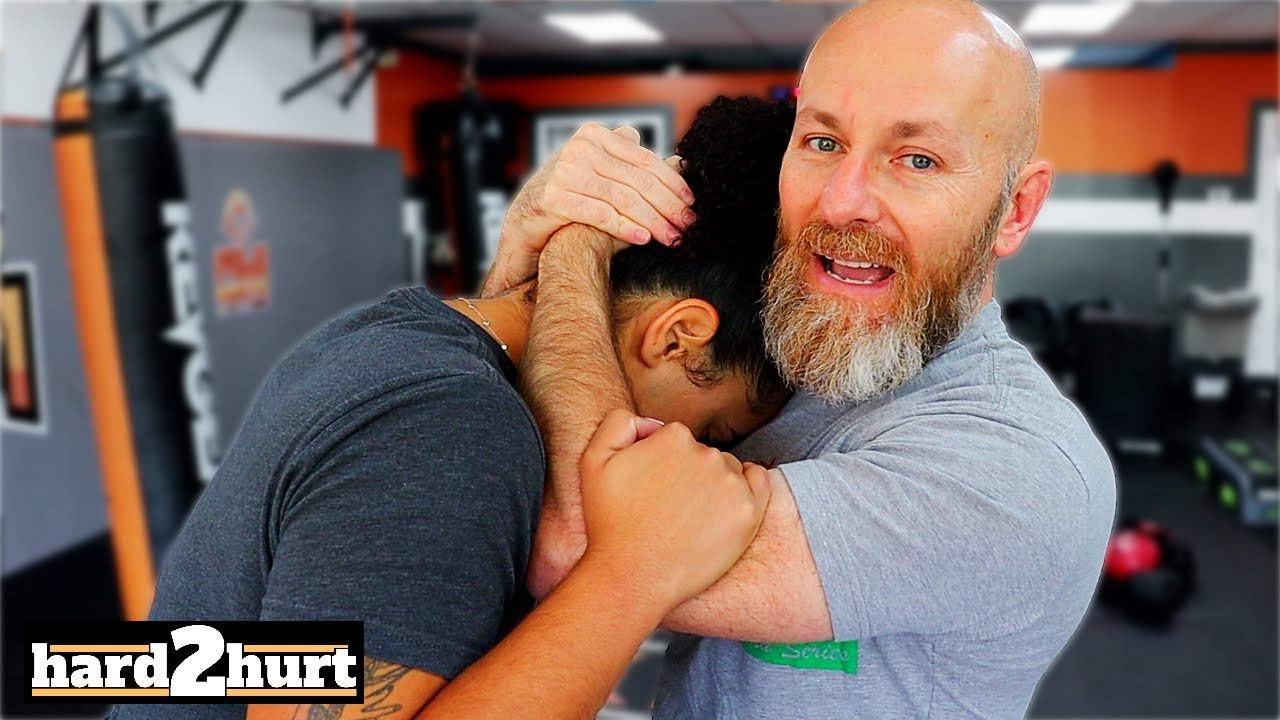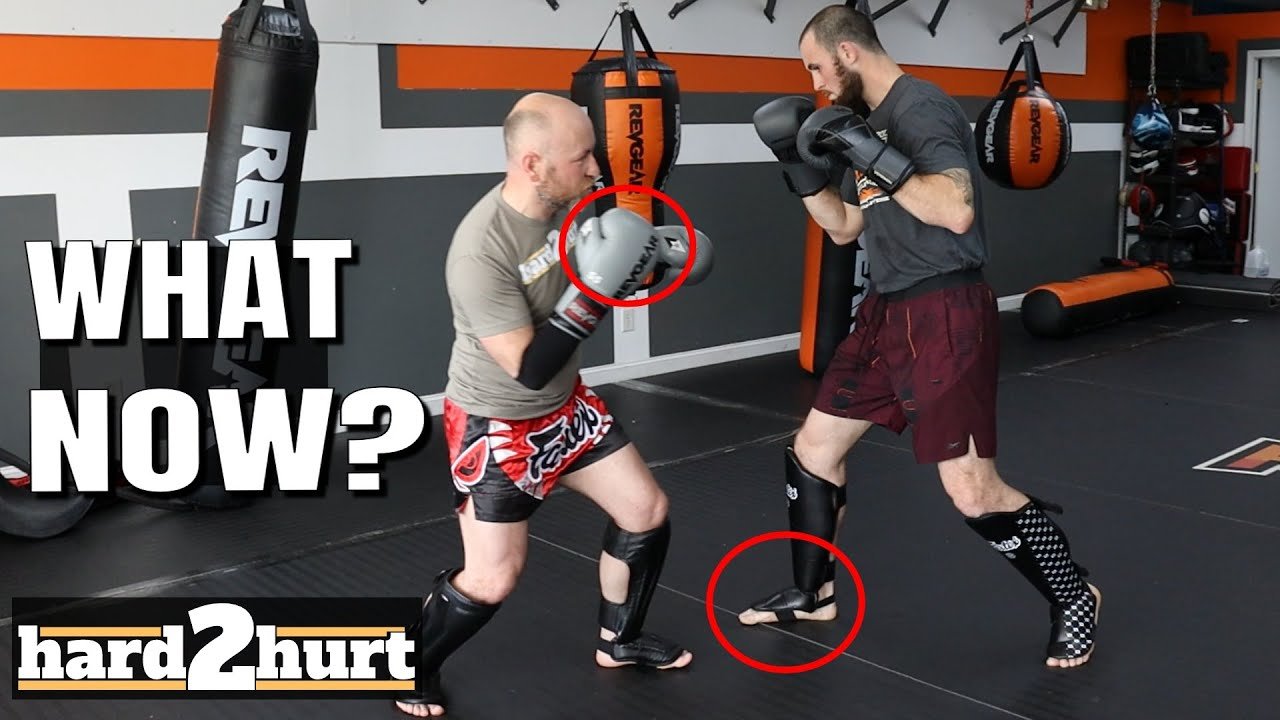Modern Self Defence: Setting Up Traps in MMA, Boxing and Kickboxing
In the realm of self-defense, the ability to manipulate a situation to your advantage can translate to victory or defeat. The concept of ‘trapping’ is a fundamental aspect of modern martial arts, particularly in MMA (Mixed Martial Arts), Boxing and Kickboxing. Understanding Trapping Trapping is the strategy of luring an opponent into an unfavorable situation, where they become susceptible to your attack. It’s often related to misdirection and manipulation. Imagine this scenario as baiting an animal into a physical or metaphorical ‘trap’, where they become an easy target for your next move. This concept isn’t limited to just physical actions, as it also ventures into the psychological aspects of fighting. By understanding what your opponent wants (for instance, hitting his target without getting hit), you essentially create a situation where that possibility seems attainable, but at a heavier price. An In-Depth Look at Trapping Techniques YouTube channel Hard2Hurt, run by Icy Mike, presents detailed explanations of trapping methods. A crucial part of the trap is something he refers to as “misdirection”. By giving your adversary the impression that they can land a strike, you can set them up for a counter-attack. Also, by building your guard and choosing your stance, you can effectively guide your opponent to aim for the ‘trap’. Specific examples provided in the video are the use of a “false lead” to lure an opponent into a counter-striking opportunity, and subtly adjusting your stance to limit the opponent’s available kicking targets. Furthermore, he describes the “perimeter trip alarm”, a technique that allows you to control a certain area and respond immediately if an opponent intrudes on that territory. This particular method is more about creating scenarios where your opponent’s options are reduced, making their next move predictable and easier to counter. Mastering the Art of Trap Setting Practicing different sets of traps is key to mastering these techniques. However, setting traps goes beyond knowing and executing the right moves. It is about understanding the opponent’s mindset and predicting their actions. Icy Mike emphasizes the need for in-depth knowledge, practice, and timing. Moreover, setting traps isn’t purely a one-way action. Your opponent could also use feints and lulls to beat your trap, which could turn the whole trap-setting dynamic into a risky gamble. This highlights the importance of unpredictability in combat, reinforcing the need for adaptation and quick thinking. In conclusion, trapping in modern self-defense disciplines like MMA, Boxing, and Kickboxing demands an elaborate blend of physical control, mental trickery, and tactical prediction. It’s not just about learning the right moves, but also learning your opponent’s behavior patterns and exploiting them to your advantage. By mastering this fundamental concept of self-defense, practitioners can enhance their overall fighting prowess and gain a significant edge in competitive fighting or real-life self-defense situations.Blablabla
The YouTube channel Hard2Hurt, managed by Icy Mike, offers guidance on self-defense and fitness. Formerly a law enforcement officer, Mike brings imperative real-world experience, making his advice practical and realistic. With unconventional workout ideas and honest gear reviews, his no-nonsense approach educates and empowers viewers to handle unpredictable situations safely.
Self-Defence Block











You can check out the Perimeter Trip Alarm at https://fithops.com
Mike, do you have a video about agility and angle change and when to use it? Thanks
A simple trap from my wrestling days that works in mma is to slap and grab the wrist, as they break your grip they expose themself and give you a free underhook or a shot for the legs depending on how they fight grips.
The early bird gets the worm, but the second mouse gets the cheese.
I really love when you have Jared on your videos I've only participated in the Muay Thai tiger kickboxing. I'm a roughneck in the offshore industry you know knees hips. Bad ankle (getting older). I don't think I could do kickboxing again without limping the rest of the week. I've been thinking about taking up boxing I just miss putting the gloves on. I love his understanding of the sport and he has some really neat tricks a lot of stuff I never thought or was taught. Boxing is cool sport it seems simple but it's actually extremely complex
i know a different kind of trapping, thanks to the prayers of my queen i could leave that life
There's this guy on youtube who filmed himself and his dog camping in some artic region and he used a trip wire with shotgun blanks as a defense against polar bears.
It seems like a good idea as wild animals are skittish but I do wonder if it'd really put off someone or something absolutely committed for one reason or another (adrenaline, drugs, hunger or starvation for an animal)
Gold.
The moment i see the batman logo i know its gotta be jake
5:14 another mouse likely ate the peanut butter. Mice don't comprehend the dead and morbidity. Mice and rats have been known to commit cannibalism on their own dead. Bigger infestation areas like barns and stuff that is pretty common to see.
Omg thank you I've tried to explain this to people and never been able to word it correctly the Idea of making one target available at a time
I'm going to try that with the kicks next time I'm sparring
Mike — You would like Edward Luttwak's book Strategy: The Logic of Peace and War. In this video, you make an EXCELLENT presentation of what Edward Luttwak would call "the strategic paradox" — that is that, in a competition between two self-aware entities (as opposed to fighting an animal, running an obstacle course, or climbing a mountain), surprise is so precious that you end up doing things that do not seem to make sense, except for the fact that they are unexpected and therefore help you win.
For what its worth, when I teach deception in a fighting context, I break it down like this:
There are three general purpose of deception:
* Maneuver deception — deception serves to manipulate the opponent into a specific desired state (you trick the guy into doing X, because that will give you an advantage in doing Y…this is mostly what you were talking about in the video, it requires an understanding of the opponent's decision-making processes to work)
* Disruption deception — deception serves simply to give the opponent extraneous information to process, thereby making him less able to focus on important things (you don't care about making him do a specific thing, you just want him generally confused…Drunken Style Kung Fu is a great example of this, but lots of styles do it to varying degrees)
* Diagnostic deception — deception serves as to stimulate the opponent to react (without actually putting yourself at risk as a probing attack would), the reaction is then studied to infer the opponent’s abilities and techniques, the insight resulting will allow you to develop counter-tactics
There are three general ways of executing deception:
* Feinting (deception by specific action) — any sort of motion suggesting the start of an action intended to compel a reaction by the opponent, such as lifting a leg or hand as if about to step or strike
* Drawing/Baiting (deception by inaction) — you intentionally leave a false opening for your opponent, such as leaving your guard low to draw a strike
* Distraction (deception by general action) — extraneous movement or actions intended to confuse the opponent, such as hand flourishes, stomping a foot, shouts, trash talk, etc
Triggers trip wire… ah shit this guy might have claymores
Love it. I love doing that sneaky stuff.
lol, Gabriel Varga comes and hangs out for a weekend and now you're giving away all the good stuff for free as well!
Gold! A lot of it!
The early bird gets the worm but the second mouse gets the cheese

traps and that perimeter alarm thing. nice
Lol that thumb nail.
Sometimes i forget Iceymikes a secret nerd
"Blanks"
As a WTF TKD guy the most advanced techniques are the feints not the kicks. 100% with you.
7:23 Did Mike just throw the kick that doesn't work?!
Real talk, how long did coming up with all of this and the cuts and everything take? Cuz this is on a whole different level than some of your other videos as far as the cuts and the different intersecting kinds of traps.
Great video.
Good stuff
I'm studying Mike's fighting style so I can run up on him in his gym
Icy Mike yer an hilarious dick. Hope these peeps forgive you.
Did you ever hear that you're a richard dreyfuss look a like?
where has J been, feel I missed that update
What I really want to know, though, is there a general understanding in the nearest police department to give any area where Icy Mike might roam the widest berth possible, because if you don't, you're far too likely to see some stuff you'd rather not, since you'd technically have to write it up, and nobody wants that kind of hassle – on a day to day basis, no less.
Mike what the fuck was that Mandela catalog nonsense? You scared the fuck outa me, I thought armchair violence was gonna get Blair witched man.
That trip alarm is awesome
That only works against a good trained fighter that takes what he's giving…. in the streets let me guess right hook right hook right hook….
Funny enough, the false lead or however its called, ive used it by accident in boxing… My oponent threw many shots to my inside so i started doing that to have it easier to slip to the outside and suddenly i noticed his punched were very limited…
We both were very unexperienced tho… But it totally took him.out of his game, he couldnt understand my reach while i was standing like that at first
I seriously respect the community of Martial Artists and Fighters you are able to collaborate with, and we get to benefit from all your accumulated wisdom.
Years ago when I competed. Was in kickboxing match, round one I noticed he was dropping left hand to block kicks to body. I started lots of legs to oppents lead leg and body with my right round kick. Round 2 starts I look directly at his lead leg as throw right roundhouse to his chin. Sure enough I had built the pattern in him to get him to drop left arm to catch body kick he had my shin for dinner. Ah memories.
"I see that face and I just want to punch it!"
"Yeah, that's fair."
Best explanation of traps & setups I’ve ever watched thank you this is criminally neglected.
Trapping is like chess. Same strategies work in striking. First move to control the center line controls the board. Pressure, always keep your opponents reaction on defense. Fork. Threaten as many pieces you can simutaneously. Pin. Threaten in a manner that forces the opponent to either block or take the blow. Threaten and preoccupy. Bridging hands happens not when you try to chase it but rather when I strike and you only have three options block it, try to move offline, take the blow. You want to control the initiative and tempo. Make your opponent waste their moves with defense or an insignificant attack. Trading valuable pieces
The next skill required is sensitivity and being like liquid flowing through rocks. If you get blocked one way and feel their force fighting against you seek a path elsewhere to strike. Lastly and this is a Mantis saying your hands are never empty, your sticking to both hands and you always take something with you be it a grab or strike. You don't leave your hand floating doing nothing.
Aikido practitioners need to watch this video.
The Ex cop and the wingchun man explains drunken without learning drunken
As a drunken Kung Fu guy, you have just explained the entry level esoteric drunken boxing. Next level would be where you explain the 2 axis and figure out the Question Mark punch without someone teaching you. Looking forward to that Mike.
Wylie Coyote
Love your content
Question regarding the trip alarm:


Why you using blanks?
Why not just stack this thing up behind an actual barrel and use life rounds or at least bean bags?
Another set of awesome